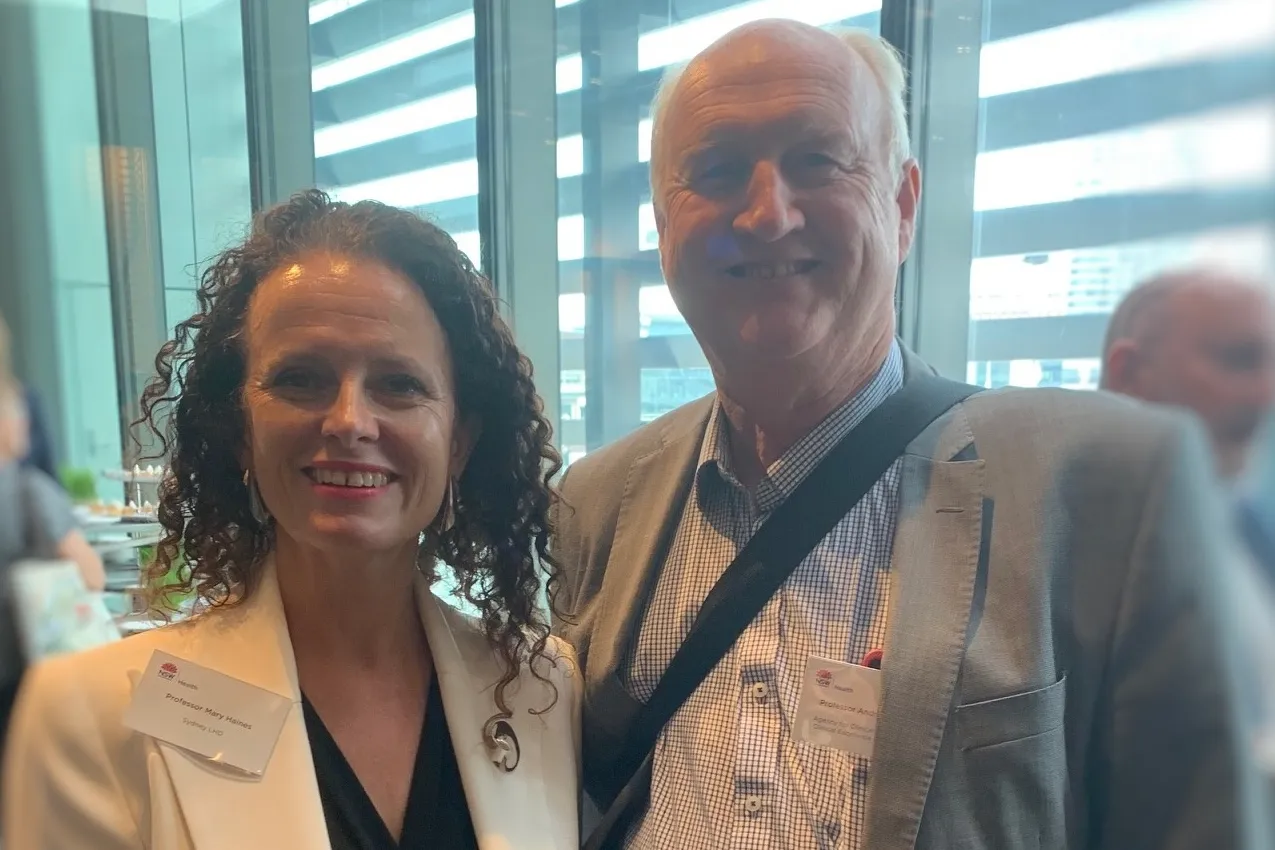
Read time: 2 minutes
Date: 04/2022
Professor Andrew Wilson has been a trailblazer in bridging the divide between the worlds of health research and policy. Trained as a public health physician and epidemiologist, he is Co-Director of The Australian Prevention Partnership Centre and Co-Director of the Menzies Centre for Health Policy and Economics at the University of Sydney, and has a special interest in chronic disease prevention. He also has a wealth of experience in health policy, including having been Deputy Director, Policy, Planning and Resourcing, Queensland Health and Chief Health Officer and Deputy Director General, Public Health, NSW Health. He currently chairs the Pharmaceutical Benefits Advisory Committee. I’m thrilled he could spare five minutes to share his valuable insights into navigating a career across these two worlds.
-Mary Haines
Top Tips: Professor Andrew Wilson on working across policy and research
Mary Haines: I’d like to talk to you about how you have successfully navigated a career that spans the policy and research worlds. Can you tell us a bit about your career and what’s enabled you to successfully transition those boundaries and work across them?
Professor Andrew Wilson: “I trained as a public health physician and as an epidemiologist, and I became fascinated with the fact that good evidence didn’t seem to be used in policy making. I really went into government the first time because I wanted to try to understand why.”
Professor Wilson says his career has been driven by a “fixation” with trying to better understand how evidence can be made more usable for decision-making – including across policy, clinical practice, public health practice and individual decision making.
His roles in government had “all been opportunities for me to look at different types of decision-making environments and the different ways the information is used within the context,” he says.
Mary Haines: So you’ve had a passion for evidence being used in policymaking. What have you learned about how you can take evidence from one setting into the other?
Professor Andrew Wilson: “I went into government placing the greatest importance on formal evidence. However, when you’re in a decision-making environment, particularly in the policy environment, there’s a whole range of other information which becomes important in decision making.”
Professor Wilson says some of that information isn’t easily quantified through traditional research.
“We have to think of other ways of getting that information into the decision-making process…. every time I become involved in these practice situations, that’s another opportunity to learn about how we might do that better, and hopefully, to apply what I’ve learned already about the process of informing decision making.”
“I had a fixation with trying to better understand how evidence can be made more usable for health policy decision-making. By moving between government and academia I’ve learnt about the process of decision making and how best to harness evidence from research”
– Professor Andrew Wilson
Mary Haines: If someone who is starting out right now wanted to emulate your career and zigzag between the research and policy sectors, what are some of the pitfalls they might need to watch out for?
Professor Andrew Wilson: When he began working in policy roles very early in his academic career, Professor Wilson says that something he “didn’t get right the first time around” was that his involvement in research dropped off.
“In an academic sense, and from a competitive grant sense, following my first period working in government, in NSW Health, I had a quantitative gap in my academic track record. So if I was going to do things differently, I would certainly think about ways in advance so I could maintain a research interest and research outputs.”
When he was moved onto more senior roles, he was in a position to initiate and get directly involved in research projects.
“I think there are people around now who have much more active research careers as part of their public sector roles.”
Mary Haines: What tips would you give researchers who wish to maintain an active research career while in policy roles?
Professor Andrew Wilson: “I think it’s important to think about the stage you are at in your career when considering going into a policy role,” he says “It’s absolutely critical to think about what the opportunity is, and you need to have a sense that the career… and the job itself is likely to have some element of learning in it.”
He says it is also important to consider the people you will be working with -those other people in the workplace are often key to such learning opportunities – and he has been fortunate to work with many inspirational Australian health policy leaders throughout his career.
“So there was always somebody there who was intellectually engaging and fun to work with. And you know, I learned from these people in an important way. And when you are working on complex but sensitive issues in government as a newbie you want others that you respect that you can bounce ideas off and this may not be possible with colleagues outside of government”
Mary Haines: Do you see an increase in ‘boundary spanners’ and the bi-directional relationship in terms of the flow of people between research and policy in the future? Do you think there’s a need for a formalised structure?
Professor Andrew Wilson: While movement has increased in both directions, Professor Wilson says more people tend to come from government settings into research roles, because universities had developed pathways to facilitate that.
”Movement in the other direction, from academia into policy, tends to involve researchers taking on advisory roles with government,” Professor Wilson says.
While there have been examples of organisations developing formal fellowship exchanges between research and policy environments, he says they remain “hard work”.
One issue was that researchers needed to be trusted and to be placed in quite senior roles in policy so they could be involved in the decision-making process.
“[They need to be] close enough to the senior executive or close enough to the political process to actually understand what the influencing factors are.”
April 2022.
Interview by Mary Haines, Founder and Director of Mary Haines Consulting (MHC), a boutique consultancy specialising in strategy, implementation, research and evaluation. MHC developed the five minutes interview series as a platform for leading professionals to share their know how.
Mary Haines, is an Adjunct Professor at the School of Public Health, Menzies Centre for Health Policy and Economics, University of Sydney
You are welcome to republish this article. Please include the following attribution:
This article was first published by Mary Haines Consulting Pty Ltd: www.maryhainesconsulting.com.au.
© 2015-2025 MH Consulting Group (MHC) | Disclaimer | Privacy
